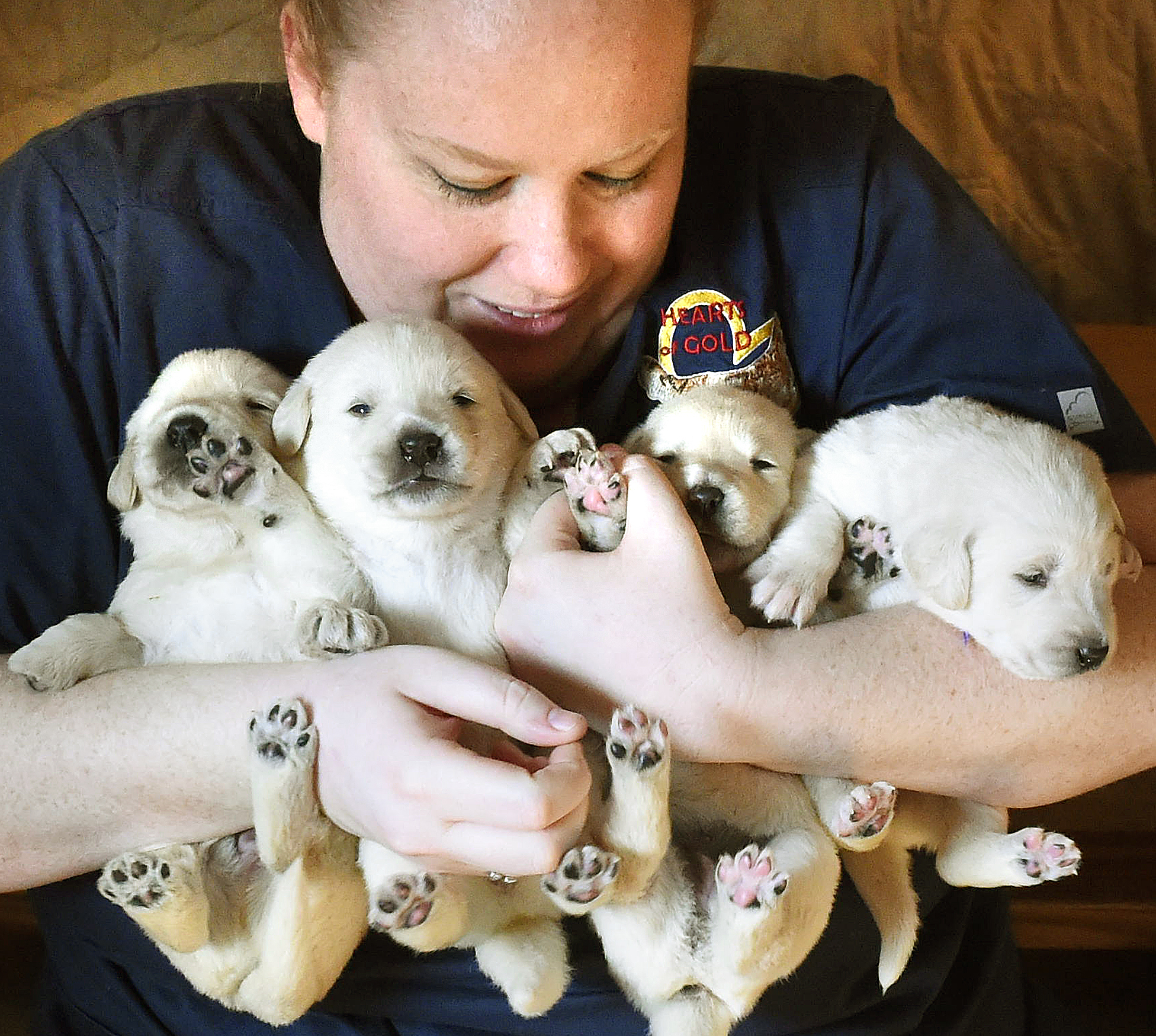Morgantown’s Hearts of Gold service dog training program is seeking applications from local veterans in need of a mobility or psychiatric service dog.
The application deadline is March 6. Hearts of Gold hopes to have the dogs placed with local veterans by September.

Lindsay Parenti, director of Program Operations for Hearts of Gold, part of West Virginia University’s Davis College of Agriculture, Natural Resources and Design, said they recently received a grant in excess of $300,000 from the Wounded Warrior Project, monies that will allow them to place 10 service dogs by fall with local veterans who live within 100 miles of Morgantown. The program has already received an application for a service dog from a Wheeling-area veteran, she said.
“We want as many applications as possible,” said Savannah Connelly, the group’s assistant trainer.
The dogs — mostly large breeds who are trainable and known to have good temperaments — have been through a two-year training program and are taught to aid in everyday tasks that many don’t think about, such as opening and closing doors, turning on lights, searching a room, waking people from nightmares and serving as a source of comfort.
Hearts of Gold does not train dogs for individual owners, Parenti said.
“Perhaps one day,” she said.
All applicants for service dogs from Hearts of Gold must be veterans.
The first step to get a service dog is to fill out a paper application. Copies are available at the Hearts of Gold office at the WVU Animal Sciences Farm off Stewartstown Road, or online at humananimalbond.org. Applicants will also need two references, as well as military documentation. Connelly said the staff is available to help filling out the application form.
Once the application is completed and returned to Hearts of Gold, the applicant will be contacted by a staff member by phone for an interview. When that step is complete, there will be a home evaluation.
The home evaluation is followed by a mandatory online course on canine basics, which Parenti described as “college level” and applicants must score 70% or higher. If that step is accomplished, then a committee will review the application, she said.
Successful applicants will be asked to go to Hearts of Gold for certification training, where they are taught commands the dog has learned. Classes will be offered once a week for 16 weeks; twice a week for six weeks, or four times a week for three weeks.
All animals are placed according to need, not a person’s income. In some cases, the animal will be for a one-month probationary period and includes weekly and biweekly sessions with trainers. To date, 25 dogs trained by Hearts of Gold have been placed with local veterans, Parenti said.
Because many program participants have mobility issues, the breeds of the dogs used by Hearts of Gold tend to be larger. Breeds used include Labrador retrievers, German shepherds, or a larger mixed-breed animal. Parenti said the dogs used for the veterans can come from shelters, or are donated, or are raised at Hearts of Gold.
The program has 12 puppies whose parents are a Labrador retriever and Pyradoodleor — Great Pyrenees, Labrador Retriever and Poodle. They were born earlier this month. Ruby, a white Pyradoodleor, is the mother, and her brother, Flash, is a trained service dog.
Connelly said they are looking for people to foster the puppies once they are ready to leave Ruby. Hearts of Gold will provide the puppy’s medical vaccines and cover all necessary medical care, as well as food and necessary equipment such as leashes, bowls and a kennel. The puppies will eventually be trained as therapy dogs.
TWEET @41Suzanne




